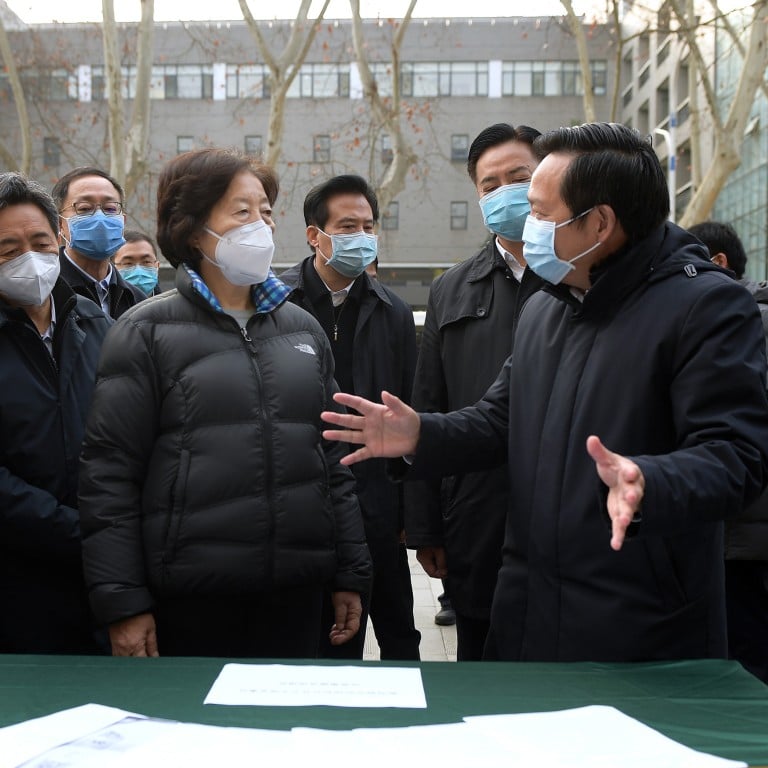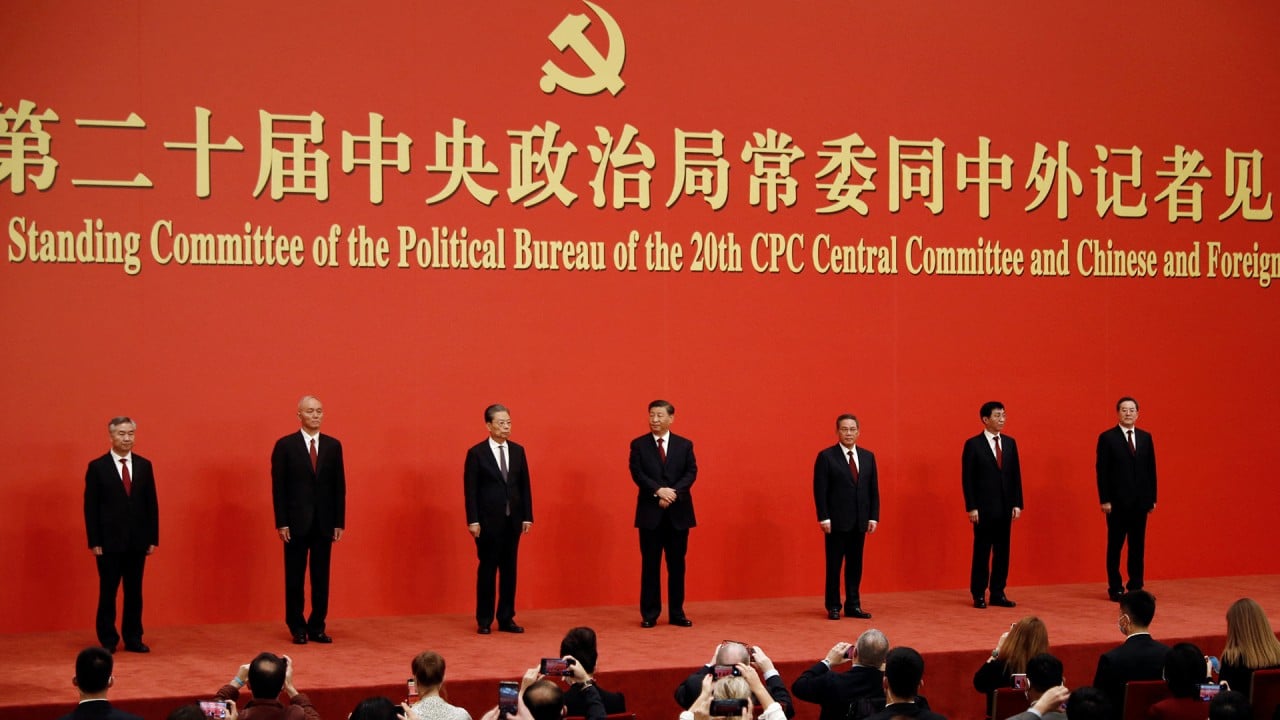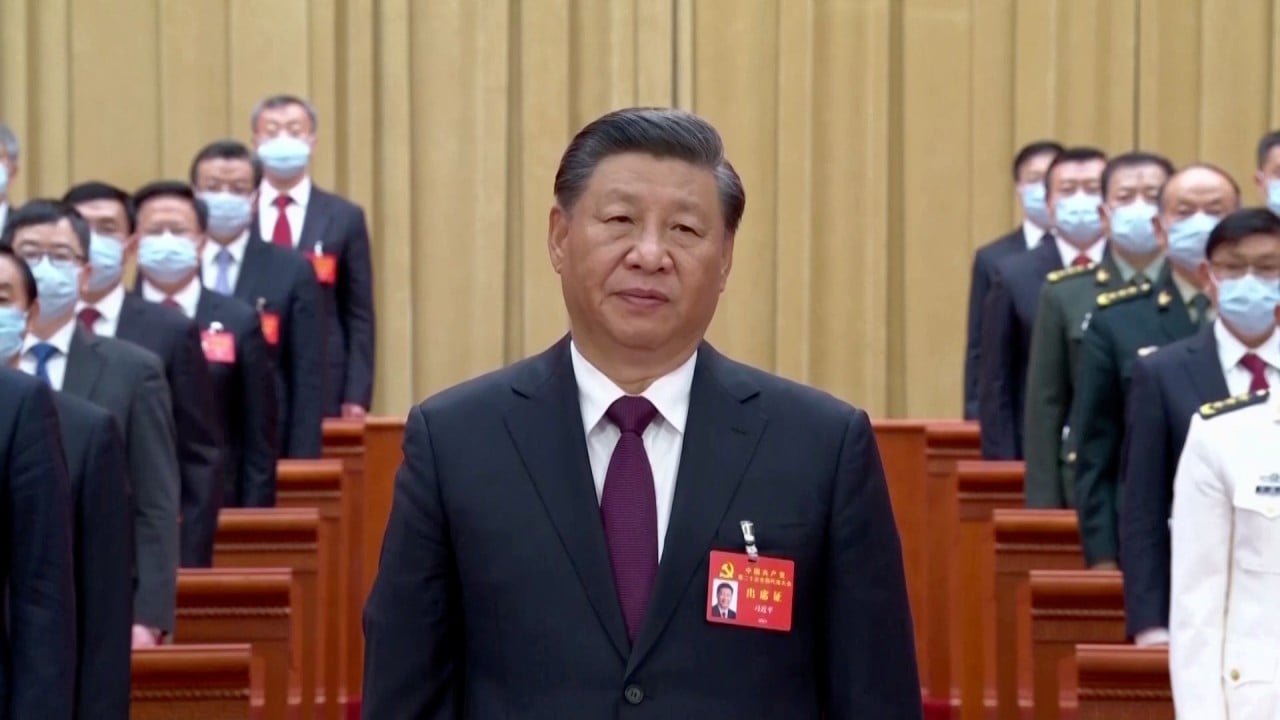
Absence of women in China’s new leadership elite a ‘step backwards’ for political diversity, say observers
- For the first time in decades, no woman has been selected for the Politburo, and just 11 of the 205 Central Committee seats went to women
- Sun Chunlan, who is set to retire as vice-premier in March, was the sixth woman to join the Politburo
While women have always been dramatically under-represented in Chinese politics, the latest arrangement has put an end to an informal practice in place since the 16th party congress in 2002 when at least one woman would be selected to serve in the Politburo and as vice-premier.
No woman has ever held a seat on the Politburo Standing Committee in the history of the 101-year-old party.
Minglu Chen, who researches gender and politics at the University of Sydney’s China Studies Centre, said she was disappointed to see a Politburo without women.
“It is disappointing because whatever small space that was carved out for women to exercise their political power is now gone at the top level,” Chen said.
“But I’m not surprised because this has been a masculine patriarchal institution and it hasn’t changed.”
Chen said it had not been ideal to have just one woman in the Politburo to begin with but “having no woman at all now is a step backward”.
Only six women have ever been selected as members of the Politburo and three of those were the wives of revolutionary leaders.
The all-male Politburo line-up was announced despite there being hopeful females standing by in senior positions.
Guizhou party secretary Shen Yiqin, aged 62 and an ethnic Bai, is one of the highest-ranking female cadres and was widely seen as the front runner to replace Sun. The other candidate was 65-year-old Shen Yueyue, head of the All-China Women’s Federation, and a former deputy head of the Central Organisation Department, which oversees the party’s personnel matters.
Shen Yiqin was tipped as having the edge because she was the only female among 31 party bosses in charge of China’s provinces, municipalities and autonomous regions.
While Shen Yiqin might be criticised for lacking experience outside Guizhou, she is not short of friends in high places. She has worked with several senior officials in the province, including top legislator Li Zhanshu, Politburo member and Chongqing party chief Chen Miner and State Councillor Zhao Kezhi.
Fengming Lu, who teaches Chinese politics at the Australian National University, said that while a Politburo without women could hurt China’s international image, gender balance might not be a priority in Chinese President Xi Jinping’s political agenda.
“He is probably more concerned with building a team of reliable men in the Politburo to execute his policies,” Lu said.
No obvious successor to Xi Jinping in China’s new leadership team
Lu added that Shen Yiqin was left out of the Politburo probably because she had inadequate administrative experience, having only been a party secretary for two years, and because the scope of her career had largely been limited to Guizhou.
“If she is transferred to another province then it suggests she might be groomed for possible vice-premiership,” Lu said.
Additional reporting by Salina Li



